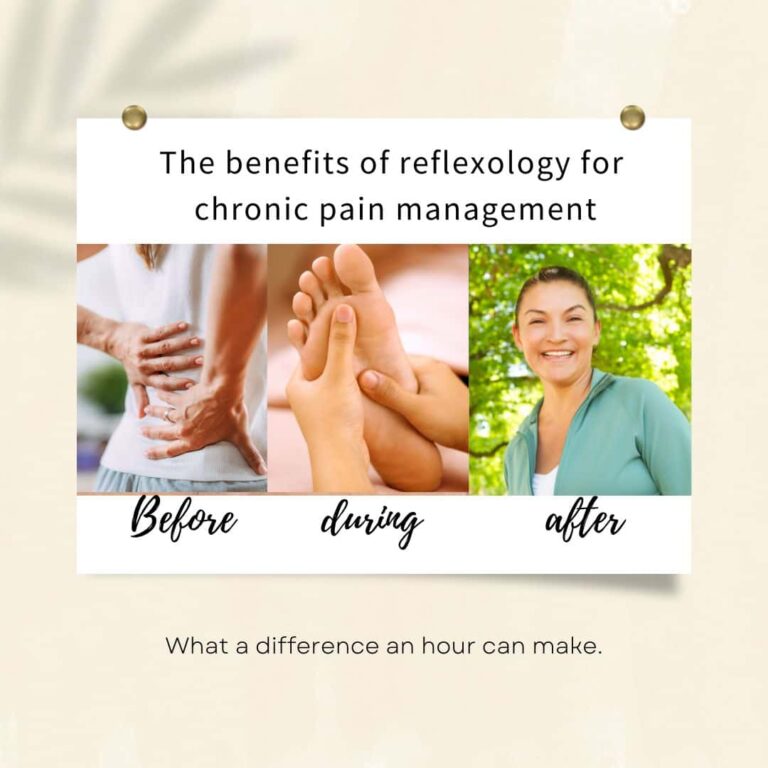Beyond Insomnia: Decode your body’s sleep messages through energy work
You’ve tried the evening routines. But can you decode your body’s sleep messages? You’ve experimented with Jin Shin Jyutsu holds and reflexology points. You’ve created the perfect sleep environment with essential oils and gentle rituals. Yet sleep still escapes – or when it comes – you’re still exhausted.
If you find yourself here, you are not failing at sleep. It’s more that your body and energy systems are trying to tell you something important. Chronic sleep issues suggest deeper patterns
- energetic blocks
- unresolved emotions
- or even spiritual callings
Each of these demand attention before you can truly rest.
This is the deeper work of sleep healing. When surface-level practices don’t resolve your sleep challenges, it’s time to be a detective around your own energy system. Your insomnia isn’t a problem to be fixed – it’s a language to be learned, a message to be decoded.
The truth is, most persistent sleep issues aren’t about sleep at all. They’re about unprocessed experiences, stuck energy, boundaries that need reinforcing, creativity that needs expression, or truth that needs speaking. Your body uses sleeplessness to get your attention when nothing else has worked. Once you understand what it’s trying to communicate, the path to healing becomes more clear.
Working with Energy Blocks and Persistent Sleep Issues
When sleep disturbances continue even though you’re practicing good sleep hygiene habits and using holistic sleep supports, it’s time to look beneath the surface. Your sleeplessness isn’t random – it’s information.
Chronic waking at specific times
Traditional Chinese Medicine recognises that different times of the night correspond to different organ systems and their associated emotions. If you consistently wake during certain windows, your body is pointing to specific imbalances.
Think of these wake times as breadcrumbs leading you toward what needs attention in your life. The precision is amazing – your body doesn’t wake you randomly at 2.47am or between 1am-3am repeated. It wakes you during the liver’s time because you’re carrying unexpressed anger or creative frustration that needs release.
Tracking your wake times for even a week can reveal patterns you’ve been missing. Keep a simple log by your bedside locker. Note down when you wake and any emotions, thoughts, or physical sensations present. The patterns that emerge become a roadmap for healing. Don’t worry, these relationships are energetic rather than being related to specific physical organs in your body. Understanding these patterns can help you address root causes rather than just symptoms.
9pm to 11pm (Triple Warmer/Endocrine System): Waking during this window often relates to metabolic issues, but also to paranoia, confusion, or difficulty with emotional metabolism – processing the day’s experiences. If you can’t fall asleep during this time, you may be stuck in the stress response, unable to shift from action mode to rest mode.
11pm to 1am (Gallbladder): This relates to your capacity to make decisions and judgments. Waking here frequently suggests your wrestling with resentment, difficulty making choices, or holding onto bitterness. The gallbladder energy needs to flow freely for you to ‘digest’ emotional experiences and move forward.
1am to 3am (Liver): This is one of the most common wake times and connects deeply to anger, frustration, and the feeling of being stuck. The liver in Chinese medicine handles the smooth flow of qi (energy) throughout your being. When liver energy stagnates – from unexpressed anger, creative frustration, or feeling trapped in your life. It disrupts sleep during these hours. Women often experience this in relation to hormonal cycles as well.
3am to 5am (Lungs): This window connects to grief, sadness, and the ability to let go. If you wake during these hours (especially with anxiety or difficulty breathing deeply), unprocessed grief may be surfacing. The lungs govern both literal breath and metaphorical ‘inspiration’ – your ability to take in life fully.
5am to 7am (Large Intestine): Waking here relates to your ability to release what no longer serves you (both physically and emotionally). Holding onto guilt, being unable to let go of the past, or difficulty with emotional boundaries often manifests as disrupted sleep during this time.
Paying attention to the pattern of when you’re waking can help you lots. It gives you a direction for your healing work. For example, if you consistently wake at 2am, your body is signalling you to address underlying anger or creative stagnation. This is essential! It’s not just for sleep, but for your overall wellbeing.
If you’d like to have specific tips to release the above tensions, watch this space for the next blog post
Taking these cues is wonderful because it helps you be less frustrated with “why can’t I just sleep?”. You can become curious about “what is my body trying to tell me?”. This shift alone – from resistance to receptivity – can begin to change your sleep patterns.
When you stop fighting your body and start listening to it, healing happens.
Feeling tired but unable to sleep
This frustrating state (exhaustion paired with an inability to rest) reveals a specific energetic pattern: your energy energy is stuck in your head rather than grounded in your body.
In today’s world, this has become an epidemic. We spend hours on screens, being distracted, and staying our head without corresponding physical movement or earthly connection. Our awareness literally becomes untethered from our bodies. We’re exhausted because we’ve been running mental marathons, but our bodies haven’t moved enough to discharge that energy.
Think of it like your computer running with too many tabs open. Your processor is overheating, but your system won’t allow shutdown because it perceives all those open tabs as essential. Your mind keeps processing even though your body desperately needs rest.
This happens when:
- Your nervous system remains hypervigilant despite physical fatigue
- Mental activity is disconnected from physical sensations
- Trauma or chronic stress has trained your system to remain alert
- You’ve spent excessive time in abstract thinking without physical grounding
The solution requires practices that pull energy downward and reconnect you to your body.
Grounding practices become essential. When we’re not grounded, our systems work about as well as the kettle that’s not plugged into the socket. To reconnect walk barefoot on the earth daily, even for five minutes. The actual contact with the ground helps discharge excess mental energy. Standing with feet hip-width apart, imagine roots growing from your feet deep into the earth. Breath and visualise energy flowing down and out.
Weighted blankets provide physical pressure that helps scattered energy settle back into the body. The Deep Pressure Touch Stimulation calms the nervous system in ways your mind cannot override.
Progressive body awareness trains you to inhabit your body again. Before sleep, slowly move attention through each body part from toes to head, simply noticing sensation without trying to change anything. Where you find numbness or absence of feeling, breathe into those areas.
Warm foot soaks with Epsom salts before bed draw energy downward. Add a few drops of vetiver or cedarwood to enhance the grounding effect. The warmth and minerals support the physical body while the ritual signals safety to your nervous system.
Sleep that doesn’t refresh
Sleep that doesn’t refresh you suggests that you’re not cycling through sleep stages properly, often because your nervous system isn’t feeling safe enough to fully let go. This requires building a sense of safety through consistent practice, possibly with support from a therapist or energy healer who can help address underlying trauma patterns.
Another way to think about this: sleep as a spiritual practice
We can focus on specifics, but what if we changed this around. We can view sleep as a time of profound healing, energetic reset, and even spiritual connection; then everything can change. You’re not just trying to get eight hours – you’re creating conditions for your system to repair, your energy to rebalance, and your consciousness to process and integrate.
Poor sleep is your body’s way of saying something needs help. Rather than fighting sleeplessness, approach it with curiosity: what is my energy trying to tell me? Where am I out of balance? What needs to shift?
These simple tools work with your whole being – not just managing symptoms but cultivating genuine good wellbeing. As you balance your with daytime awareness and evening practices, your sleep will improve because you’re addressing the deeper causes.
Start with what feels right to you. Notice what shifts. Trust your body and energy system to return to balance. Your role is simply to remove obstacles and provide support. Sleep well, not just through force of habit, but by being in harmony.






